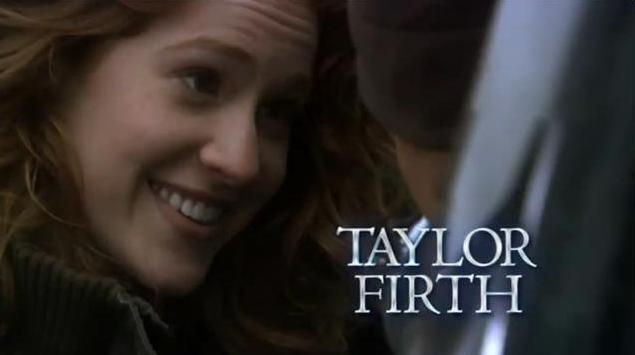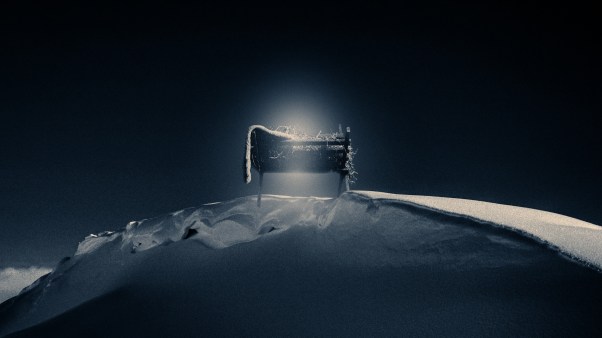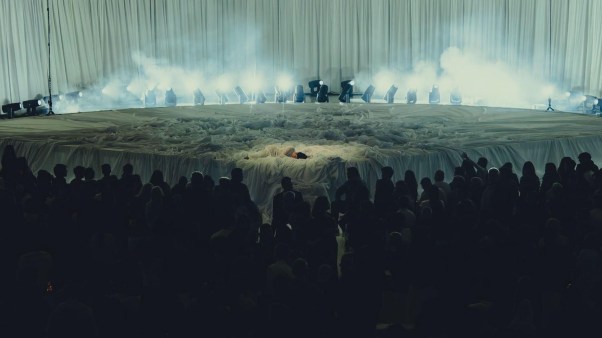 I first introduced my husband to one of my all-time favorite films one hot August night in Belize. An unlikely introduction, but we were staying in a hotel whose only air-conditioned area was the media room. I was on what felt like my 17th consecutive day of being sick after eating some unfamiliar food. We shut ourselves in and, for the next couple of hours, were completely absorbed by the story of when Harry met Sally. He loved the line about the worst kind of woman being the high-maintenance one who thinks she’s low-maintenance—I still don’t hear the end of that—while I was struck by the charming, frustrating, and familiar world its screenwriter, Nora Ephron, had created. Ephron died on Tuesday of pneumonia, a complication of the leukemia she had lived with for the past six years.
I first introduced my husband to one of my all-time favorite films one hot August night in Belize. An unlikely introduction, but we were staying in a hotel whose only air-conditioned area was the media room. I was on what felt like my 17th consecutive day of being sick after eating some unfamiliar food. We shut ourselves in and, for the next couple of hours, were completely absorbed by the story of when Harry met Sally. He loved the line about the worst kind of woman being the high-maintenance one who thinks she’s low-maintenance—I still don’t hear the end of that—while I was struck by the charming, frustrating, and familiar world its screenwriter, Nora Ephron, had created. Ephron died on Tuesday of pneumonia, a complication of the leukemia she had lived with for the past six years.
When Harry Met Sally, her best-known film, explored topics in relationships that had never previously been brought together in one story. Most memorably, perhaps, was Sally’s, ahem, climactic acting job in the diner. But one of its recurring themes was the question of whether men and women could actually be friends. Ephron’s screenplay never delivered an easy answer, instead revealing the complications inherent in cross-gender friendships and tackling difficult issues with fearlessness and humor. In her decades-long career, Ephron gave voice to the internal monologue of the modern woman, a sort of female Woody Allen without the cloying cliches. The humor that permeated her essays and novels and scripts broke gender barriers, creating worlds in which neither man nor woman acted according to a prescribed role but instead responded to the shifting expectations and cultural norms around them.
If some people are described as “triple threats,” Ephron will be remembered as a septuple-threat, at least: a journalist, screenwriter, playwright, novelist, producer, director, and author whose sense of humor was the common thread that held all of her endeavors together. Female journalists and screenwriters of our day certainly owe a debt to Ephron, whose remarkable tenacity, talent, and capacity for connection guided her from Newsweek mail girl to Oscar-nominated screenwriter.
Ephron was an anomaly in many ways—a journalist-turned-screenwriter who earned her feminist credentials writing romantic comedies. She showed us that women could be funny—and not just about PMS, and not just by copying the boys. She had a delicious sense of humor, and a keen eye for capturing what was both zeitgeist-y and timeless; The Hairpin described her as “Joan Didion for people who didn’t really have their [stuff] together.” Her talent for writing didn’t preclude a deep enjoyment of life, and while she could be endearingly sarcastic to make a point, she never crossed the line into cynicism. She was brilliant and witty with an appetite for life that betrayed her sense of wonder at it, even if she wasn’t sure what it all meant.
Ephron considered her Jewish heritage tangential to her career success and her adult identity. On the interview circuit for Julie and Julia, she told an NPR reporter, “You can never have too much butter – that is my belief. If I have a religion, that’s it.” Her eventual atheism made its way into her films, but she combined it with the kinds of Big Questions that we all face, ones that we as Christians hold an entirely different response to, but can resonate with nonetheless. In You’ve Got Mail, Meg Ryan’s character opens up to the viewer with some of these questions:
“Sometimes I wonder about my life. I lead a small life—well, valuable, but small—and sometimes I wonder, do I do it because I like it, or because I haven’t been brave? So much of what I see reminds me of something I read in a book, when shouldn’t it be the other way around? I don’t really want an answer. I just want to send this cosmic question out into the void. So good night, dear void.”
Somewhere along the journey, most people encounter the void. And some people can’t get past it. For one reason or another, the void is where they hang their hat. Perhaps the God who was presented to them was too mean or scary, perhaps they were disappointed by the church, perhaps they don’t want to know any more. Ephron danced up to that void time and again, but held onto a sense of hope in the larger story of humanity. Even as recently as her 2009 film Julie and Julia, about the life of Julia Child and the food blogger who tried to imitate her, Ephron wrote to remind her audience of the universality of fear and the good that can be accomplished when we overcome it.
We don’t have to overcome on our own, and that is the good news. It has already been done for us, and now we walk with God in the fullness of life. But other people point us on our way, and I will always be grateful for the work that Ms. Ephron did in her lifetime—asking important questions, revealing cultural assumptions. And always—always—there was laughter.
Remember Ice Castles, the 1978 teen romance on ice starring Robby Benson and Lynn-Holly Johnson? Well, they’ve done a remake, with a young Christian skater in the lead role.
Ice Castles, the 2010 version, releases to DVD today, just in time for the Winter Olympic Games in Vancouver. Special guest appearances in the film include Olympic Medalist Michelle Kwan and NBC correspondent Andrea Joyce.
But the star of the show is 19-year-old Taylor Firth, a one-time aspiring Olympian herself (she placed 13th at the 2009 U.S. Nationals), from Jamestown, NY. Firth is a regular at her church’s youth group, and says she loves to write poetry about how God influences her life. Her short program music for the 2010 season is Michael W. Smith’s “Prayer for Taylor.”
“This is my God-given talent. This is what I have to do,” Firth told a local newspaper. “This isn’t my ability, it’s His ability. I’ve grown up a Christian all my life. It’s who I am.”
Here’s the trailer:








